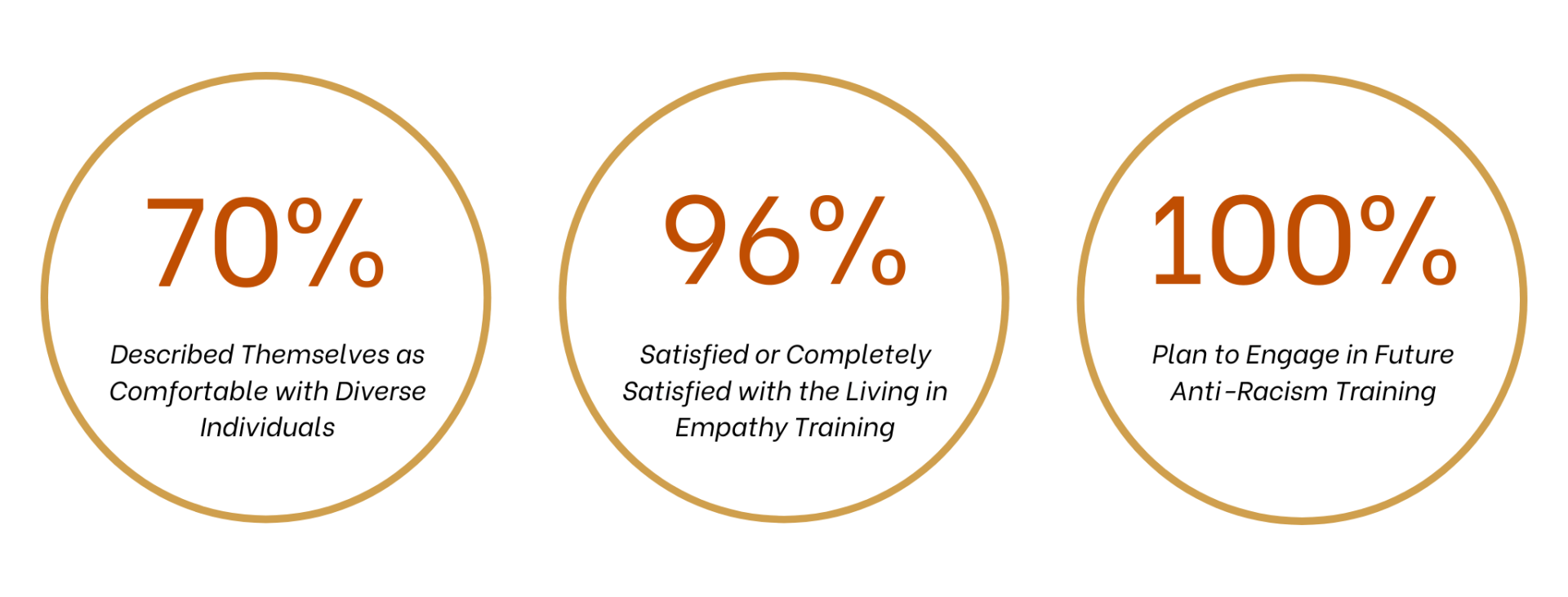Living in Empathy Institute
Beta Data
Overview of Key Findings:
There were 88 attendees in the Living in Empathy training who completed both the pre- and post-survey. Attendees completed three sets of questions from the Miville-Guzman Universality Diversity Scale (MGUDS). Questions assessed changes before and after the training in their interest in participating in diverse social and cultural activities, value diversity on self-understanding and personal growth, and comfort level with diverse individuals.
By the end of the Living in Empathy training series, attendees reported increased:
- interest in participating in diverse social and cultural activities,
- appreciation for the role of diversity in self-understanding and personal growth,
- comfort with diverse individuals.
Technical Summary:
Measure:
Attendees completed the 15-item Miville-Guzman Universality Diversity Scale (MGUDS; Fuertes et al., 2000; Miville et al., 1999) which included three subscales. The five-item Diversity of Contact subscale assessed changes in attendees’ interest in participating in diverse social and cultural activities. The five-item Relativistic Appreciation subscale assessed the extent to which attendees value diversity on self-understanding and personal growth. The five-item Comfort with Differences assessed attendees’ comfort level with diverse individuals. Each question has responses from 1 (strongly disagree) to 6 (strongly agree). Mean scores were calculated for each subscale. For the Diversity of Contact and Relativistic Appreciation subscales higher scores represent more interest and valuing of diversity, respectively. For the Comfort with Differences, higher scores represent less comfort with diversity. All three subscales demonstrated acceptable internal consistency at pre- and post-survey (α = .56 - .73)
Results:
Paired samples t tests were conducted to changes in attendees’ scores on each subscale from the beginning of the training to the end of the training. Paired samples t tests indicated a statistically significant increase in attendees’ scores of Diversity of Contact from the beginning of the training (M = 4.77, SD = .77) to the end of the training (M = 5.05, SD = .71), t(46) = −2.96, p < .01, as well as a statistically significant increase in attendees’ scores of Relativistic Appreciation from the beginning of the training (M = 5.25, SD = .68) to the end of the training (M = 5.55, SD = .47), t(46) = −3.49, p < .01. Further, paired samples t tests indicated a statistically significant decrease in attendees’ scores of Comfort with Differences from the beginning of the training (M = 2.80, SD = .42) to the end of the training (M = 1.80, SD =.66), t(46) = −9.93, p < .001.
Make an Impact. Become a Sponsor Today.
Useful Links
Join our Newsletter
Living In Empathy LLC | All rights reserved | Privacy Policy

